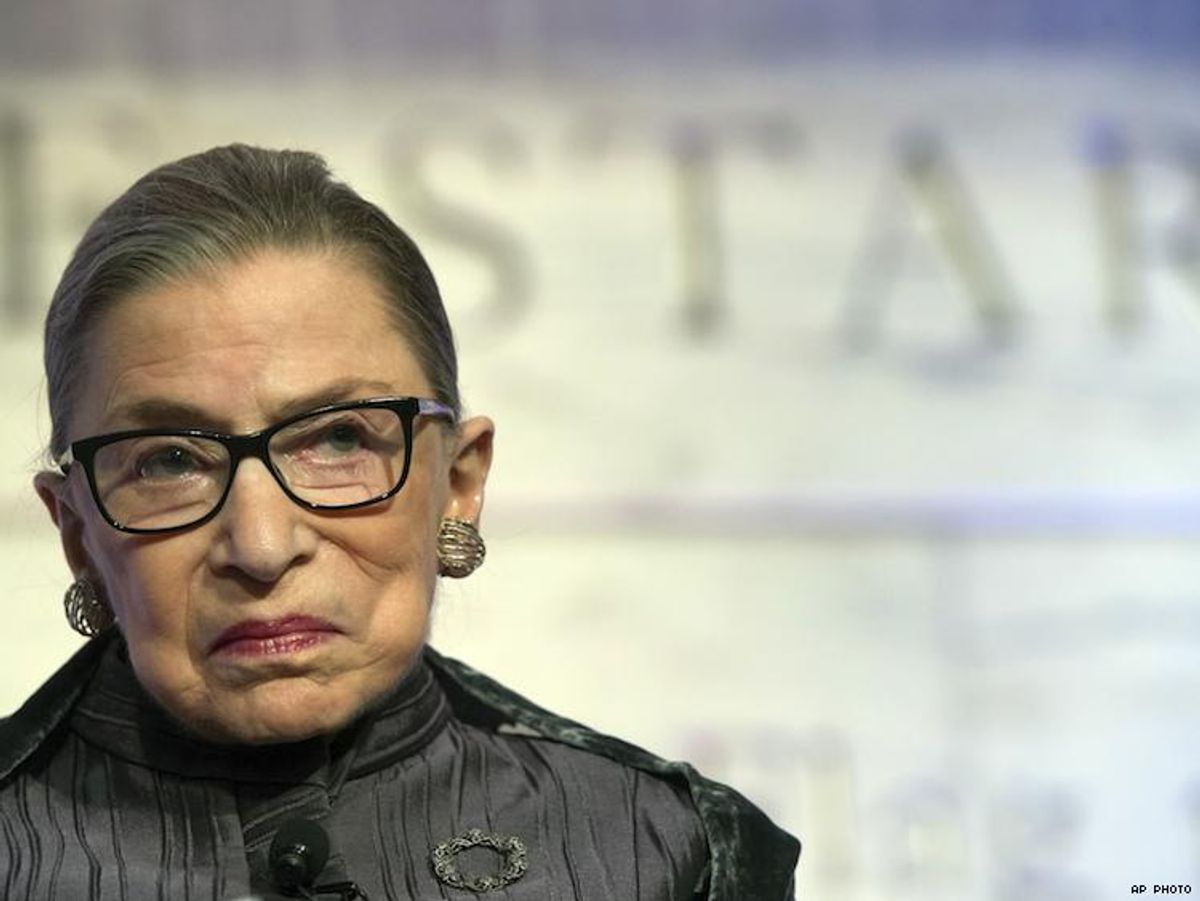Supreme Court Justice Ruth Bader Ginsburg apologized today for voicing her criticism of presumptive Republican presidential nominee Donald Trump.
But her apology stopped short of retracting the warning she issued about the danger of a possible Trump presidency.
On Sunday, The New York Times published an interview with the 83-year-old justice in which she said, "I can't imagine what this place would be -- I can't imagine what the country would be -- with Donald Trump as our president."
A day later, Ginsburg called Trump a "faker" in an interview with CNN.
But after days of political and media blowback, the reliably progressive justice issed a statement today critiquing her decision to make those comments publicly.
"On reflection, my recent remarks in response to press inquiries were ill-advised and I regret making them," Ginsburg said in a statement issued by the Supreme Court press office and reported by numerous media outlets. "Judges should avoid commenting on a candidate for public office," she added. "In the future I will be more circumspect."
While it is not illegal for Supreme Court justices to opine on political candidates, it is unusual. Media reactions to Ginsburg's comments ranged from outright condemnation to awestruck admiration, with Slate's out legal writer Mark Joseph Stern noting that the oldest justice on the nation's high court just "risked her legacy" to warn against the possibility of a disastrous future.
"Ginsburg has decided to sacrifice some of her prestige in order to send as clear a warning signal about Trump as she possibly can," wrote Stern, speculating on the justice's rationale for what he calls a clear breach of nonpartisan judicial ethics. "The subtext of Ginsburg's comments, of her willingness to comment, is that Trump poses an unparalleled threat to this country -- a threat so great that she will abandon judicial propriety in order to warn against looming disaster."
Following Ginsburg's initial comments on him, Trump went after her on Twitter, ultimately demanding her resignation.


















































































Here's our dream all-queer cast for 'The White Lotus' season 4